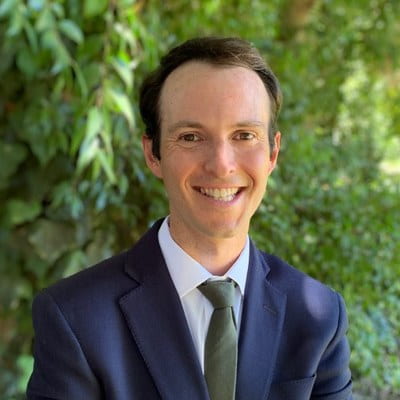Researcher Spotlight: Derek Rury, PhD

At the BIP Lab, our main goal is to understand parental decision-making. Information is power, and learning about someone else’s personal experience can be particularly helpful when making decisions for your career. In our “Researcher Spotlight” interview series, we spoke with our researchers to learn about their motivations, their work, and what they like about the BIP Lab.
This time we chatted with Derek Rury, a postdoctoral researcher at the BIP Lab. Derek studies the economics of education focusing on how students’ beliefs influence their educational decisions and outcomes.
BIP Lab: What drew you to work at the BIP Lab?
Rury: I’ve always wanted to see behind the curtain of what the driving forces of young people’s outcomes are. Simply put, parents have such a large impact on student outcomes. They are also relatively understudied by economists. Working with such a fantastic team of scholars dedicated to understanding how and why parents make the decisions they do seemed like the perfect opportunity for me to dive into this topic and broaden my knowledge.
BIP Lab: What are you currently working on in the Lab?
Rury: Several items. I am working on writing up our findings for both our MPACT and CAPER field experiments. I’m also analyzing some of our newest data on parental beliefs, expectations and values from our Early Investments and Parenting survey. Lastly, I’ve been focusing lately on how parents use information about their child’s performance to inform their parental-investment behavior. To do that, I’m fleshing out the details of a field experiment that would elicit this type of information from parents and then measure how they responded once learning about their child’s performance.
BIP Lab: What is one of your biggest professional accomplishments to date?
Rury: Completing my PhD! Also being hired by the BIP Lab.
BIP Lab: When and how did you first become interested in your field?
Rury: I became interested in student decision-making when I was first introduced to research. I was taking a PhD-level research methods course as part of my master’s program and the final assignment was to design a research project. For some reason, probably because I was reflecting on my own academic path up to that point, I naturally thought of studying how students select different majors. So, I designed a field experiment to both elicit and influence students’ beliefs about how much one can earn with a degree in different fields. From that point on, I was hooked.
BIP Lab: What was the most useful piece of information you received at the beginning of your career and how was it helpful?
Rury: Use every opportunity to present your research. It really forced me to think through important ideas and made me comfortable with not having the answers. It germinated an important idea in my mind; research isn’t a discreet process going from incomplete to compete, rather it changes, evolves and flows. Embracing that aspect of the research process has been extremely helpful.
BIP Lab: What is something that your experience at the BIP Lab has taught you?
Rury: Work with good people, and it will naturally bring out the best in yourself.
BIP Lab: What do you enjoy doing in your free time?
Rury: Spending as much time as I can with loved ones, which includes my two dogs, Otto and Birdie. Also, hiking, reading and cooking are hobbies I really enjoy. I also really love playing board games and am (not so) secretly hoping to design my own someday.
